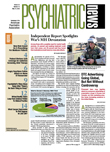The nation's health care workforce is unprepared to meet the needs of an aging American population, according to a report from the Institute of Medicine (IOM) issued last month.
The report, “Retooling for an Aging America: Building the Health Care Workforce,” calls for bold initiatives starting immediately to train all health care providers in the basics of geriatric care and to prepare family members and other informal caregivers, who currently receive little or no training in how to tend to their aging loved ones. The committee set a target date of 2030—the year by which all baby boomers will be 65 or older—for the necessary reforms to be in place.
The report also recommends that Medicare, Medicaid, and other health plans should pay higher reimbursement rates to boost recruitment and retention of geriatric specialists and care aides.
“We face an impending crisis as the growing number of older patients, who are living longer with more complex health needs, increasingly outpaces the number of health care providers with the knowledge and skills to care for them capably,” said committee chair John Rowe, a professor of health policy and management at the Mailman School of Public Health at Columbia University, in a statement released with the IOM report. “The sheer number of older patients in the coming years will require trying new models for delivering health care and the commitment of greater financial resources. If our aging family members and friends are to live as robustly as they can and in the best health possible, we must have a workforce of adequate size and competency to take care of them.”
The IOM committee issued a number of recommendations aimed at enhancing the geriatric health care workforce, increasing financial incentives for geriatric health care professionals, and improving geriatric care. Among them are the following:
•
Congress should require an annual report from the Bureau of Health Professions to monitor the progress made in addressing the crisis in the supply of the health care workforce for older adults.
•
Hospitals should encourage geriatric training of residents in all settings where older adults receive care, including nursing homes, assisted-living facilities, and patients' homes.
•
All licensure, certification, and maintenance of certification for health care professionals should include demonstration of competence in the care of older adults as a criterion.
•
States and the federal government should increase minimum training standards for all direct-care workers.
•
Public, private, and community organizations should provide funding and ensure that adequate training opportunities are available in the community for informal caregivers.
•
All payers should include a specific enhancement of reimbursement for clinical services delivered to older adults by practitioners with a certification of special expertise in geriatrics.
•
Congress should authorize and fund an enhancement of the Geriatric Academic Career Award program to support junior geriatrics faculty in other health professions in addition to allopathic and osteopathic medicine.
•
States and the federal government should institute programs for loan forgiveness, scholarships, and direct financial incentives for professionals who become geriatric specialists. One such mechanism should include the development of a National Geriatric Service Corps, modeled after the National Health Service Corps.
The committee included psychiatrist Charles Reynolds, M.D., president-elect of the American Association of Geriatric Psychiatry (AAGP). In a statement posted on the AAGP Web site, Reynolds urged Congress to act on the IOM recommendations.
“Unless changes are made now, older Americans will face long waits, decreased choice, and suboptimal care,” Reynolds said.
The AAGP notes that today there are just 3.9 geriatric psychiatrists for every 10,000 Americans aged 85 and older and just 1.1 for every 10,000 over age 75. The group estimates the country needs 5,000 geriatric psychiatrists, but says that last year there were fewer than 1,600 board-certified geriatric psychiatrists in the United States.
AAGP President Bruce Pollock, M.D., underscored the IOM's call for better reimbursement for psychiatrists entering geriatric care.
“While the demand for specialized mental health care is great, physicians face several financial disincentives to entering the field of geriatric psychiatry such as annual scheduled cuts to Medicare physician payments and discriminatory coverage of mental health benefits under Medicare,” Pollock said. “This affects providers as well as patients.”
A report brief on “Retooling for an Aging America: Building the Health Care Workforce” is posted at<www.iom.edu/Object.File/Master/53/507/HealthcareWorkforce_RB.pdf>. The full report can be purchased at<http://books.nap.edu/catalog.php?record_id=12089>.▪
